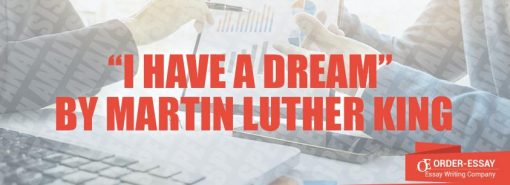
PREPARATION OUTLINE
TOPIC: Analysis of Angela Lee Duckworth’s “The Key to Success? Grit” speech
GENERAL PURPOSE: To inform people about the purpose and use of grit.
SPECIFIC PURPOSE: To enlighten the listeners how Angela Lee Duckworth used the rhetorical situation of grit implementation in the society of education and managed to prove a new study.
THESIS STATEMENT: Angela Lee Duckworth’s “The Key to Success? Grit” speech responding to the rhetorical situation concerning the educational failure and challenges was a success among the students and society, as many people believed in the use of IQ in determining the sharpness of a student.
Introduction
Attention-getting device: I am sure everyone deserves an opportunity to learn and acquire much in learning and in life. Almost five years ago, a prominent speaker known as Angela Lee Duckworth spoke to the audience about the education system at that time. She claimed that it was a shame how the education system listed people per their ability to think fast or according to their level of IQ. Fortunately, Angela Lee Duckworth’s speech gives an effective solution to the underlying problem within the education system.
Thesis: Angela Lee Duckworth’s “The Key to Success? Grit” speech responding to the current rhetorical situation concerning the educational failure and challenges was a success among the students and society.
Preview: Today’s discussion is about the speech of a famous former schoolteacher. Angela Lee Duckworth predicted various issues concerning the education system. If people listen to her and put everything she said in practice, I am sure success will be knocking on everyone’s door. Students are the most aspiring future leaders, so their education is very important. People are supposed to understand students in different ways as Angela did, and that is why she gave a speech trying to protect them. Therefore, I would like to take you through Angela’s speech and analyze the four elements of rhetorical situation delivered in the speech of “The Key to Success? Grit”.
Body
Let me provide a brief introduction to is the personality of Angela Lee Duckworth. She is a high school teacher. She is a management consultant. She is a psychologist. She has many achievements. Angela was working as a management consultant in a prominent office, but she left her job to become a high school teacher in New York school. During her teaching, she realized that students did not get what they deserved in education. The education system is biased in the form of ranking the students according to their level of IQ. Angela introduced grit as a passion or perseverance to accomplish something with an aim of achieving a specific goal in future. It is evident that after Angela’s discovery, she decided to quit teaching and later continued her studying psychology. She was much interested in studying kids as well as adults. Angela managed to research people as well as companies with their behaviors in the process of obtaining information about grit. I am sure everyone is familiar with the Angela in question now.
-
The first element of the portrayed rhetoric situation is the audience. Angela Lee Duckworth’s “The Key to Success? Grit” speech was addressed to the people inside the hall at that time, the society including education board and students, and over a million people who listened to her speech online.
-
The people inside the hall had listened to Angela very attentively, with the aim of getting something from the speech. The hall was her first primary audience. Angela was telling the people the need to change the ways of studying in the school systems. As stated by Duckworth and Quinn’s article written in 2009, Angela pointed out how an analysis she did showed many students with a high IQ do not end up being successful. Additionally, she made clear how the information on the grit system could help people permanently reach their goals.
-
Her secondary audience comprised of students and teachers in the education departments. It is clear that every student is different from the others, and to help every student, teachers require a clear understanding of their students in a special way. Talents do not guarantee a student more successful future compared to non-talented students. Therefore, it is the teachers’ responsibility to help every kind of student in meeting their goals in life.
-
Society was Angela’s third audience, as she studied people and provided them with a solution to the problem of dropping out of schools and quitting jobs. Correspondingly, Angela pointed out how companies can benefit by embracing the grit system. According to her research, many employees quit job every year for no viable reason. Angela stated in her speech: “We partnered with private companies, asking which of these salespeople is going to keep their jobs? And who’s going to earn most money?”
-
TRANSITION: People will know the need to apply grit in studies and in their everyday life, hence, encouraging motivation to avoid giving up by implementing grit in their life.
-
Another element of the rhetoric situation is the occasion. Angela was addressing to the crowd and the nation when she found the need to inform people about the crisis that the education system was facing. As discussed in the speech, Angela was a teacher when she discovered how students found it hard to study, since the system only recognizes the smartest through IQ tests.
-
According to Duckworth and Gross’s article written in 2014, Angela found out that students could do perfectly well if one worked hard and consistently. Angela found the need to research the best forum other than IQ and introduced grit in her studies. Angela studied the military, teachers, and companies to come up with the best research conclusions about the use of grit.
-
Accordingly, Angela Duckworth was able to leave teaching after her first discovery to study further in accomplishing her dream of helping people. She believed that given the chance of studying differently, every student would have been better with time as long as students showed hard work. Angela quitted teaching with the aim of learning more about her inventions. More so, she started doing the research on people, companies, and kids on the issue of IQ and hard work. Angela’s main question in every study was “who is successful here and why?” as she quoted.
-
As stated by Duckworth, Peterson, Matthews, and Kelly’s article written in 2007, Angela realized that people get tired; some of them leave schools, others leave their jobs, since no one is entitled to complete anything as long as there is no hard work. Angela concluded that good looks and IQ do not lead to success, but the application of grit can guarantee success, according to her research.
-
TRANSITION: Angela’s introduction of grit leads to the new encouragement of students who qualify for future even after having bad results at school.
-
As a speaker, Angela displays ethos in the way she is so passionate to her students and their well-being. She left her management job to help students attain their dreams in learning. The speaker is also another element of the rhetoric situation.
-
Angela showed how she transformed from a mere teacher to a research analyst in a positive way. According to Von Culin, Tsukayama, and Duckworth’s article written in 2014, Angela went and graduated to become a psychologist and started studying kids and adults. Her interaction with people was marvelous, as she managed to intermingle and learn the behaviors of the people she studied.
-
Angela also analyzed schools concerning teachers and tough students and researched companies concerning sales people who made more profits than others regardless of the same employed resources. As stated by Duckworth and Gross’s article written in 2014, Angela was able to relate with many people well enough, as she knew the purpose of uniting in finding a cure to the conflicting issues of studying affecting the people.
-
TRANSITION: Angela managed to research through mingling with people and studying new things about the application of grit.
-
Another element of the rhetoric situation is the speech. The speech by Angela Lee Duckworth, well presented by the use of facial expressions, gestures, and humor, leads the audience to applause. Similarly, her use of examples makes the listeners believe and compare the effects of grit towards her studies.
-
The speech presented by Angela is clear, as she states the need to comprehend grit in every aspect of life. She claimed: “So far, the best idea I’ve heard about building grit is something called “mindset growth”. Angela’s speech is about building grit towards students and making sure students turn out to be grittier and successful.
-
Undoubtedly, her speech accompanied by perfect illustrations with gestures and facial expressions caught the attention of her audience until the end of the session. Eskreis-Winkler, Shulman, Beal, and Duckworth’s article of 2014 explains how Angela used her hands to demonstrate her wording in response to her speech.
-
Similarly, Angela Lee Duckworth kept full eye contact throughout the session, which made the audience feel lively. Moreover, the use of words to express her message is exceptional, as she showed much understanding of what she was saying. She even pauses during the speech to let the listeners applaud to an amusing statement. The speech illustrates how Angela had done enough research, as she supported her arguments with evidence. She stated: “Our data show very clearly that there are many talented individuals who simply do not follow through on their commitments.” Therefore, Angela’s speech revealed how grit benefited many students as well as other individuals in attaining their goals. The presentation of illustration is when Angela spoke of the research done by Dr. Carol Dweck from Stanford University. According to the article written by Von Culin et al. in 2014, Dr. Dweck claimed that when a child studies about their brain and how it works and changes, they persevere when they fail because of the new belief that failure is not a permanent condition.
-
-
TRANSITION: Angela portrayed the need for society to embrace grit in their doings, especially in the education system.



Get a Price Quote
Conclusion
Summary: Today’s discussion has been about the speech of Angela Lee Duckworth as she introduced grit in the system of education. With the experience of being a teacher, Angela showed how she managed to do the research on the causes of students having different results at school. Her argument about IQ is relevant, since not all students have the same capability of thinking. Similarly, hard work and consistency define success for every student, giving permanent positive results.
Closure: In conclusion, people can have better results if they can apply grit in every action they take. Therefore, the speech of Angela is important to everyone who needs to see the results of hard work. Grit can be applied to anything, be it studying, job, or hobbies. Therefore, Angela Lee Duckworth ended her remarks with a motivational statement: “In other words, we need to be gritty about getting our kids grittier.”








